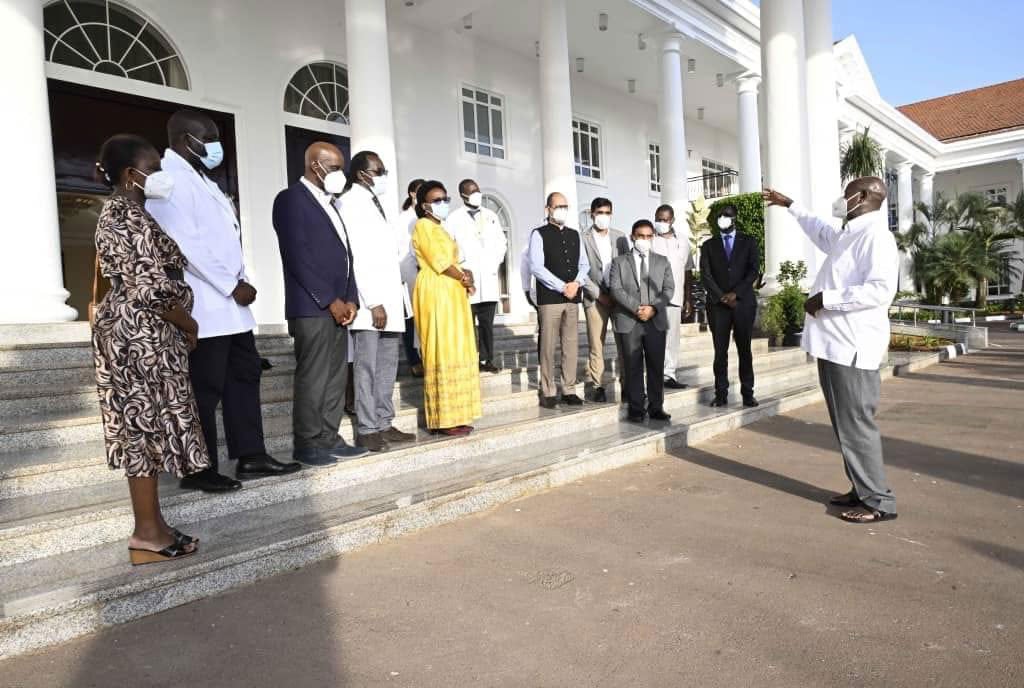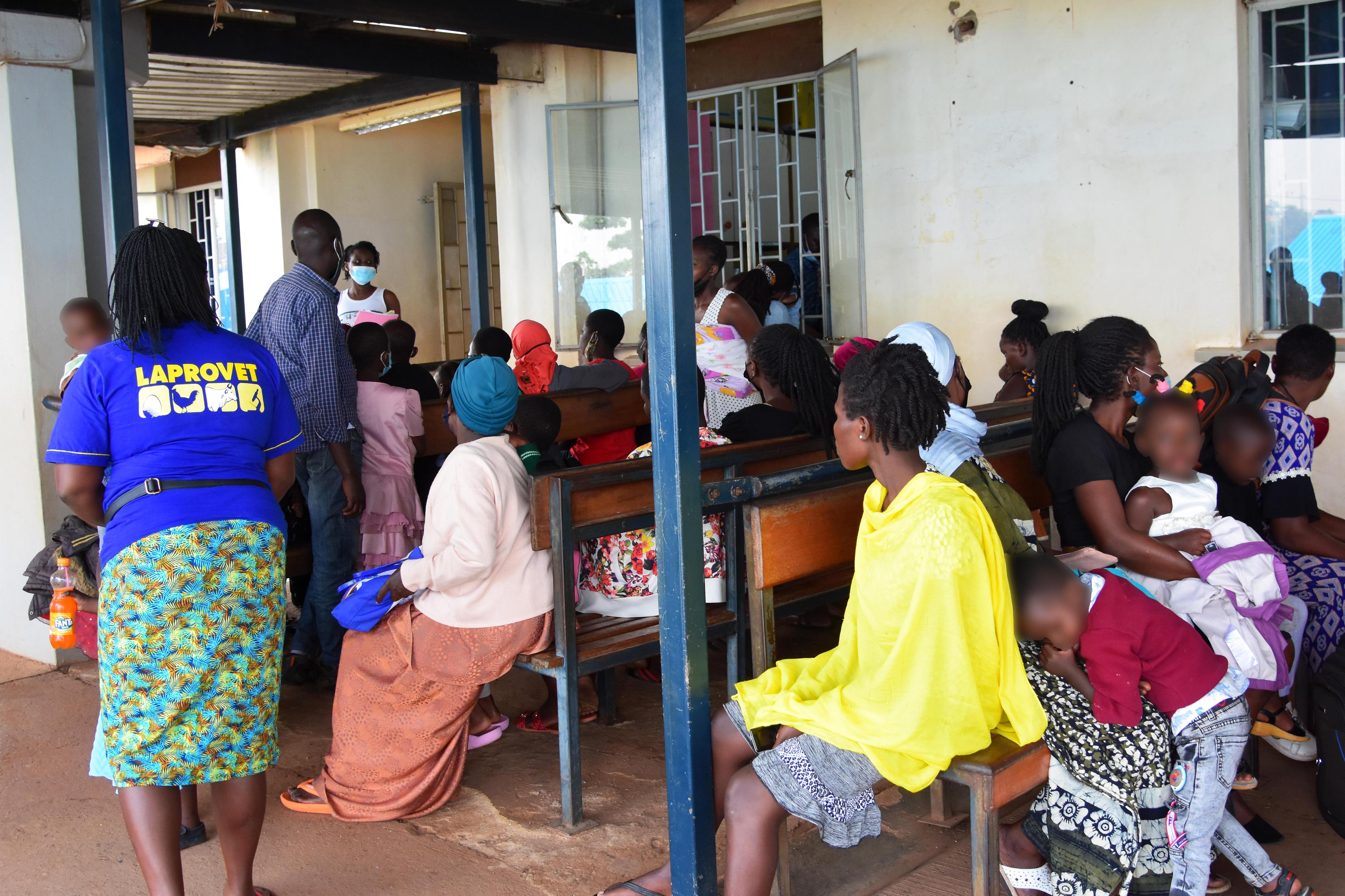Prime
Scramble for free kidney transplants

Doctors attend to a patient at Mulago National Referral Hospital last year. PHOTO/FILE
What you need to know:
- Kidney transplants are expensive for many patients with kidney failure.
- Dialysis only keeps patients okay but a successful kidney transplant restores one’s health.
Government has allowed at least five lucky patients on dialysis to have kidney transplants at Mulago National Referral Hospital free of charge before the fee for the life-saving procedure is determined for patients to start paying, officials revealed.
Restricting the number of beneficiaries of free services means the majority of the 30 patients, who are currently on the growing waiting list for kidney transplants at Mulago, will need to find ways to pay for the complex medical procedure.
Prof Frank Asiimwe, the lead transplant surgeon at Mulago hospital, while commenting on recent media reports that each patient will have to pay Shs46 million for the transplant, said they are yet to determine the actual amount.
“We haven’t zeroed down to the cost. We will do it after about three or five transplants,” he told this publication at the weekend.
The intention to determine the cost and start charging patients followed a directive by the Health Minister, Dr Jane Ruth Aceng, that the government cannot pay for everyone who needs an organ transplant.
“Specialised services are extremely expensive. There is nowhere in the world where you can get specialised services free of charge, there is always a cost. Right now, the cost is being borne by the government because we are just beginning,” Dr Aceng said.
“The discussions we had with Mulago [hospital] team [is that] after the second or third patient, when we are now absolutely sure that we are on the path to sustainability, patients will have to come in and pay because whatever is used on the patient is extremely expensive,” she added.
Her directive followed Uganda’s first kidney transplant successfully conducted at Mulago hospital in December last year by a team of medical experts from Uganda with their counterparts from Yashoda Hospital in India.

President Museveni gestures on December 22, 2023 after a meeting with officials from Uganda's health ministry and a team of Ugandan and Indian scientists who carried out the East African country's first ever kidney transplant on December 20, 2023. PHOTO/HANDOUT
This marked the beginning of the kidney transplant programme in Uganda, which the Ministry of Health and doctors say would save Ugandans with kidney conditions from travelling abroad for transplant.
Dr Peace Bagasha, a nephrologist (kidney specialist) at Mulago, said before selecting the first kidney patient to undergo transplant, they “had 30 pairs of patients”.
“We eliminated many of them to remain with the final four pairs of patients. Many patients would not allow to be the first patients. It was a humbling experience when they [four pairs] said they were willing,” she said.
“The three pairs that have not been transplanted this time, we are hopeful that we shall be able to transplant them the next time. We did a lot of tests. We had a lot of support from Uganda Heart Institute, Uganda Lung Institute, Lancet laboratories, nuclear medical team and imaging,” she added.
Dr Simon Peter Eyoku, the head of the kidney unit at Mulago hospital, told this publication last week that following the successful transplant on the first patient, many kidney patients now want to be included among those to get transplants.
According to information from the health ministry, 13 percent of Ugandans have some kidney disease with 2 percent having end-stage disease – meaning they require kidney transplants. Currently, there are more than 1,000 patients with end-stage kidney disease on dialysis, according to the health ministry.
Mulago hospital handles 1,082 dialysis sessions annually. Kiruddu National Referral Hospital handles almost a similar number. Other people get kidney care in regional referral hospitals and private facilities.
Dr Eyoku, however, noted that a transplant at Mulago may cost between $10,000 (Shs38m) and $12,000 (Shs46m), the amount he reasoned is cheaper than travelling to India for a transplant at the cost of about $26,500 (Shs101m).
Dr Eyoku said the Shs46m includes charges for the actual transplant, drugs, consultations and hospital reviews.
The estimated amount of Shs46 million is close to the fee of Shs45 million that Dr Moses Muwanga, the assistant commissioner for clinical services at the Ministry of Health, also mentioned earlier last year.
However, some Ugandans, majorly on social media, complained that the amount the government intends to charge is too high.
“[This is a] Simple life death sentence for a common Uganda. In such cases, most families cannot afford,” a Facebook user Moses Wakibi said.
Another Facebook user Luke Alyenyo said: “Many people work almost for the rest of their lives without handling this money in their hands.”
However, a divergent Facebook user Maureen Anino argued: “All those complaining obviously do not know that the ordinary cost of a kidney transplant is between Shs200m and Shs300m. So, this effort by the government is a good start that will help to save more lives as we wait for more affordable or free medical services.”
Prof Robert Kalyesubula, the president of Uganda Kidney Foundation, in an interview with this publication, reinforced what Anino said.
“The cost of solid organ transplantantion is very high. I am actually not sure any one, apart from government, can pull it off at $10,000,” he said yesterday.
Prof Kalyesubula added that in countries like India, Kenya and Turkey, the “cost of kidney transplant varies between $25,000 and $35,000”.
Information from families of people who underwent transplants in Kenya indicates that their medical bills totalled somewhere between Shs68m and Shs150m.
In Germany, the cost kidney transplant starts from €75,000 (Shs309m), in Pakistan is from €8.800 (Shs36m), while in India it is from €9,800 (Shs40m), and in the US is an average of €230,000 (Shs949m), according to information from https://www.flymedi.com, the Netherlands-based company that helps people navigate healthcare services across the world.
However, when one factors in the cost of travel, the money one requires goes higher.
In her directive, Dr Aceng said the executive director of Mulago and her team are analysing everything that is being spent on the first patient who got a kidney transplant in Uganda.
“They will give us a cost at the end of all these procedures of how much it has taken them to take care of the patient from the time of preparation to transplant and post-transplant. I was told that the majority of the work is post-transplant and it never stops,” she said.
“From there, we will determine how much the procedures will be costing and we will communicate it to the population. The costing should factor in the human resource part, the specialists who do this work,” she added.
Why you may need a kidney transplant
A kidney transplant is often the treatment of choice for kidney failure, compared with a lifetime on dialysis. A kidney transplant can treat chronic kidney disease or end-stage renal disease to help you feel better and live longer.
Compared with dialysis, kidney transplant is associated with:
• Better quality of life
• Lower risk of death
• Fewer dietary restrictions
• Lower treatment cost
Some people may also benefit from receiving a kidney transplant before needing to go on dialysis, a procedure known as preemptive kidney transplant.
But for certain people with kidney failure, a kidney transplant may be riskier than dialysis. Conditions that may prevent you from being eligible for a kidney transplant include:
• Advanced age
• Severe heart disease
• Active or recently treated cancer
• Dementia or poorly controlled mental illness
• Alcohol or drug abuse
• Any other factor that could affect the ability to safely undergo the procedure and take the medications needed after a transplant to prevent organ rejection.
Only one donated kidney is needed to replace two failed kidneys, making living-donor kidney transplantation an option.
If a compatible living donor isn’t available, your name may be placed on a kidney transplant waiting list to receive a kidney from a deceased donor.
How long you have to wait for a deceased donor organ depends on the degree of matching or compatibility between you and the donor, time on dialysis and on the transplant waitlist, and expected survival post-transplant.
Some people get a match within several months, and others may wait several years.
*Source: Mayo Clinic website



